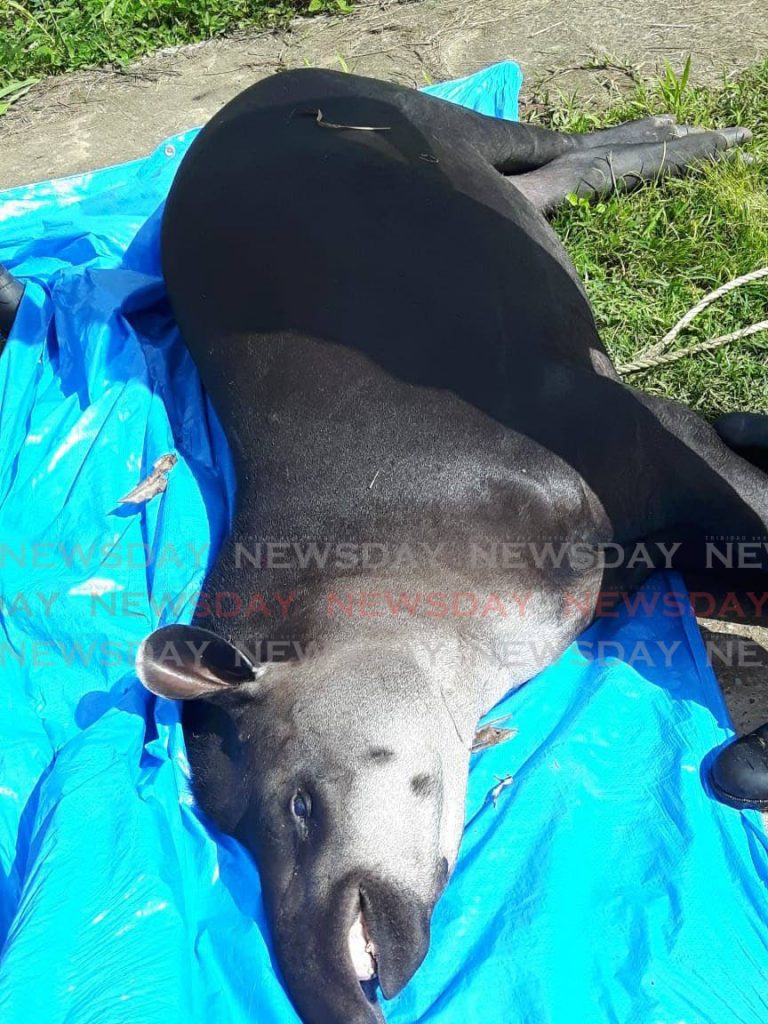From Penal to Emperor Valley Zoo - Tara the tapir's adventures

What an adventure Tara the tapir has had.
She was rescued after being seen wandering in Penal in January but is now happy in her new permanent home at the Emperor Valley Zoo in Port of Spain.
Newsday visited the zoo this week and spoke with animal caretakers and zoologists about Tara's welfare and got an insight into the behaviour and habits of the snouted herbivore. The tapir, a pig-like animal, is native to South America and is protected by law. Tara is believed to have been smuggled into the country.

"You can tell she's happy, by the noises she makes," a zookeeper told Newsday. Tapirs sound as if they are whistling and both Tara and her new roommate in the large enclosure can frequently be heard whistling.
Zookeepers said Tara has fully settled into her new home, a distant journey from Penal, in south Trinidad, where she was tranquilised and rescued after she ventured into a family's house searching for a meal. There were previous sightings, supposedly of the same tapir, but they were not reported because at that point the tapir appeared to pose no threat.
The name of the other tapir in Tara's enclosure is Chula. She is a more mature and heavier female and is believed to be over 20 years old. Tara's exact age is unknown but experts who examined her teeth estimate she is about a year old. A baby in front of Chula.
While Tara is an adolescent, she is bulky and stands over three feet tall and almost six feet long, from head to tail. She will grow by several feet and add a couple hundred pounds by the time she is fully grown. "(But) she is definitely not 500lbs," the caretaker told Newsday, in contrast to earlier reports.
Tapirs eat primarily fruit and vegetables, with a particular love for bananas. The caretakers say the two, Tara and Chula, get along well – better than the zoo's other two tapirs, a male and female, which are housed in a separate enclosure.
Tara and Chula also have the comfort of a pond within their enclosure, mimicking as best as possible, their natural habitat, which they were unfortunately taken from. Chula is in her prime, while Tara is expected to attract visitors for many years to come. In the wild and in captivity, tapirs have an average lifespan of 25-30 years.

Comments
"From Penal to Emperor Valley Zoo – Tara the tapir’s adventures"